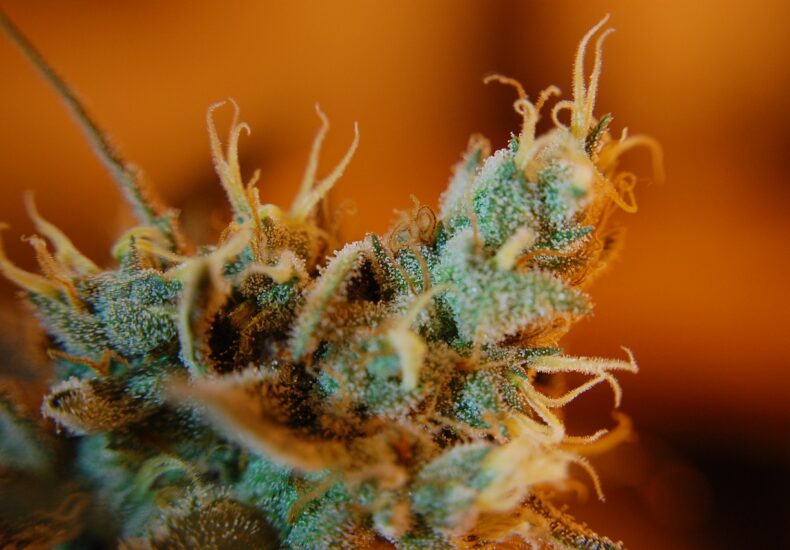
THCa Flower: The Non-Psychoactive Cannabis That’s Taking Over Wellness
THCa Flower: The Non-Psychoactive Cannabis That’s Taking Over Wellness
The world of cannabis is evolving rapidly, with new discoveries and innovations emerging regularly. One such development is the rise of local THCa fl ower, a non-psychoactive form of cannabis that is gaining popularity in the wellness community. This article explores the benefits, uses, and growing interest in THCa flower, providing insights into why it is becoming a preferred choice for many seeking natural health solutions.
Understanding THCa: The Basics
THCa, or tetrahydrocannabinolic acid, is a cannabinoid found in raw cannabis plants. Unlike THC, the compound responsible for the psychoactive effects of cannabis, THCa does not produce a high. This is because THCa is the precursor to THC and only converts to THC when exposed to heat through a process called decarboxylation.
In its raw form, THCa offers a range of potential health benefits without the mind-altering effects associated with THC. This makes it an attractive option for individuals seeking the therapeutic properties of cannabis without the high.
The Health Benefits of THCa
Research into the benefits of THCa is still in its early stages, but preliminary studies and anecdotal evidence suggest several potential advantages:
- Anti-inflammatory Properties: THCa flower may help reduce inflammation, making it beneficial for conditions such as arthritis and other inflammatory diseases.
- Neuroprotective Effects: Some studies indicate that THCa could have neuroprotective properties, potentially aiding in the prevention of neurodegenerative diseases.
- Anti-emetic Benefits: THCa might help alleviate nausea and vomiting, which can be particularly useful for patients undergoing chemotherapy.
- Antioxidant Properties: As an antioxidant, THCa may help protect cells from damage caused by free radicals.
THCa in the Wellness Industry
The wellness industry is increasingly embracing THCa flower for its potential health benefits. Many wellness enthusiasts are incorporating THCa into their routines through various methods:
- Juicing: Raw cannabis leaves and flowers can be juiced to create a nutrient-rich beverage that retains the THCa content.
- Topicals: THCa-infused creams and balms are used for localized relief from pain and inflammation.
- Tinctures and Capsules: These products offer a convenient way to consume THCa without smoking or vaping.
Case Studies and Real-Life Examples
Several case studies highlight the potential of THCa in improving health outcomes. For instance, a study published in the “Journal of Pain and Symptom Management” reported that patients with chronic pain experienced significant relief after using THCa-rich cannabis products. Another example involves a patient with epilepsy who found that THCa helped reduce the frequency and severity of seizures.
These examples underscore the growing interest in THCa as a natural alternative for managing various health conditions.
The Legal Landscape of THCa
The legal status of THCa varies by region, as it is often classified differently from THC. In some areas, THCa is legal and can be purchased without restrictions, while in others, it may be subject to the same regulations as THC. It is important for consumers to be aware of the laws in their area before purchasing or using THCa products.
Challenges and Considerations
Despite its potential benefits, there are challenges associated with THCa. The lack of extensive research means that much of the evidence supporting its use is anecdotal. Additionally, the variability in product quality and potency can make it difficult for consumers to find reliable sources of THCa.
Consumers should seek out reputable brands and consult with healthcare professionals when considering THCa as part of their wellness regimen.
The Future of THCa in Wellness
The interest in THCa is expected to grow as more research is conducted and awareness of its benefits increases. As the wellness industry continues to explore natural and holistic approaches to health, THCa is likely to play a significant role in the future of cannabis-based therapies.
Conclusion
THCa flower represents a promising development in the world of cannabis, offering potential health benefits without the psychoactive effects of THC. Its anti-inflammatory, neuroprotective, and antioxidant properties make it an appealing option for those seeking natural wellness solutions. As research progresses and the legal landscape evolves, THCa is poised to become a staple in the wellness community, providing a new avenue for individuals to explore the therapeutic potential of cannabis.
Recent Posts
- Exploring Delta nine Gummies: Dosage, Effects, and Important Facts
- Fungi And Fitness– Exactly How They Collaborate For Boosted Efficiency.
- Navigating the World of CBD Oil for Canines: What You Required to Know
- The Growing Trend of CBD for Pets: What Owners Ought To Take into consideration
- Avoiding Rip-offs: What to Watch Out for When Choosing a Gold Individual Retirement Account Firm